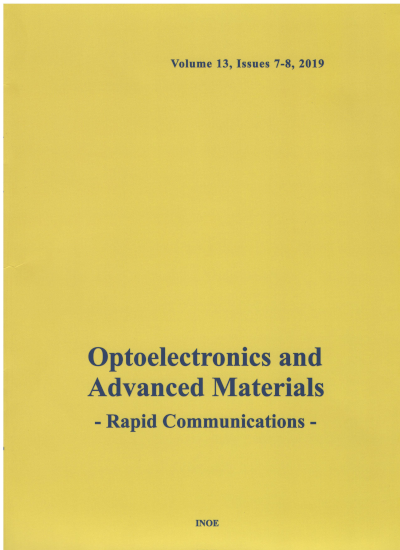Abstract
The application of Acetonitrile (ACN) on Polymer Solar Cells (PSCs) was investigated in this paper. The conductivity of
PEDOT: PS S was significantly enhanced compared with that of untreated samples. The PEDOT: PSS was mixed with
freshly prepared co solvents of ACN and De Ionized water . Meanwhile, the Power Conversion Efficiency (PCE) of PSCs was
improved by a freshly prepared co sol vent treatment. The PCE of co solvent treated devices achieved 1.27% while the
untreated one was only 0.3%. However, expired co solvents were found to be negative to PSCs because of ACN hydrolysis.
The PCE of PSCs based on hydrolyzed co solvents was lower than 0.01%. It was found that the H and NH 4 ions generated
from ACN aggregates the PEDOT: PSS and roughs the surface of PEDOT: PSS thin films. Meanwhile , Indium ion s was
dissolved and transported to the PEODT: PSS surface by the acetic acid could be anot her possibility of the performance
decrease . Although the conductivity dramatically increased to 230S cm 1 the series resistance simultaneously increased
over 1.5×103 Ω·cm2, leads to a great loss of current output. Because of that, charges could not be transport ed to the
electrodes since they are recombined at the PEDOT: PSS surface..
Keywords
Polymer Solar Cells, PEDOT:PSS, Doping, Hydrolysis.
Citation
GUILIN LIU, YING GUO, HUAXIN ZHU, HUIMIN YAN, BINGJIE ZHU, GUOHUA LI, Enhanced PEDOT: PSS films by acetonitrile co-solvents and their application on polymer solar cells, Optoelectronics and Advanced Materials - Rapid Communications, 10, 9-10, September-October 2016, pp.693-699 (2016).
Submitted at: Dec. 17, 2014
Accepted at: Sept. 29, 2016
